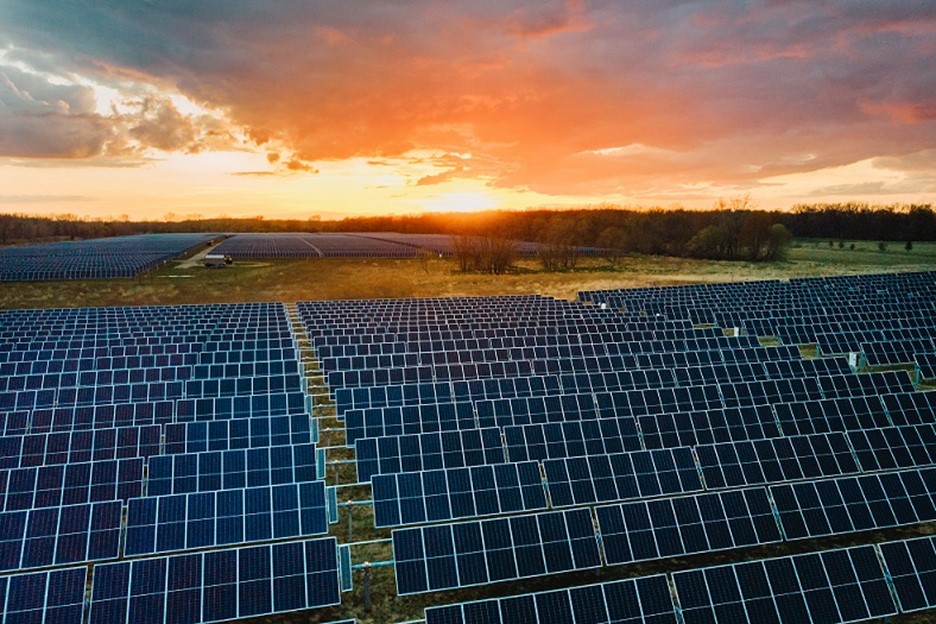
MEDC and MIT Technology Review Insights Show Climate Considerations Are a Top Factor in Business Decisions
MEDC Communications
Monday, September 30, 2024
- A national survey by MIT Technology Review Insights, in conjunction with the Michigan Economic Development Corporation (MEDC), shows how senior U.S. executives are planning for climate change
- Businesses are weighing relocation due to climate risks; executives highlight the availability of climate-planning programs and access to natural resources as their top criteria
- While every respondent acknowledged the costs and risks associated with climate change, many selected the Midwest as the least exposed region of the country

LANSING, Mich. – There’s no denying that climate risk is at our front door, with 99% of the U.S. population having been subject to at least one extreme-weather alert since this past May. This fact isn’t lost on business executives, who are aligned about the economic effects of climate change. A national survey of 300 senior U.S. executives conducted by MIT Technology Review Insights, in conjunction with the MEDC, found every single respondent agreeing that climate change is either harming the economy today or will do so in the future.
When asked about their own organizations’ experiences, all respondents identified ways their businesses have already been negatively impacted by climate change. The majority have suffered business disruption (61%) and damage to physical infrastructure (55%). Many also reported their operational costs (64%) and insurance premiums (63%) are rising. An overwhelming majority of respondents (75%) reported their organization has considered relocating due to climate risk. Twenty-four percent have acted on these concerns, stating they have already relocated physical infrastructure to prepare for climate change impacts.
“Climate change is causing more extreme weather events and raising risks for business right now,” says Kara Cook, the State of Michigan’s Chief Climate and Energy Strategist. “Here in Michigan, we're facing climate change head-on with investments to build up our water infrastructure, produce more clean, reliable energy, enhance our grid resilience and more. As national leaders in climate action, we are continually finding new ways to make our businesses and communities more prepared for climate events, while growing our clean energy economy.”
When judging a potential new business site, 71% of executives highlight the availability of climate-planning resources as among their top criteria. Michigan development programs that show businesses how nearby wetlands can help prevent onsite flooding or how microgrids can help build companies’ power resilience are examples of these types of resources.
Jurisdictions that have climate adaptation plans of their own, such as the MI Healthy Climate Plan, are likely to also have resources for businesses, including those that are scouting future facility sites.
In addition to business resources, nearly two-thirds (64%) of respondents also cited the importance of a location’s access to critical natural resources, such as fresh water.
No parts of the U.S. are immune to the effects of climate change. However, some areas are substantially less exposed to risk than others. Nearly half of all respondents (47%) selected the Midwest as the least exposed region of the country. At the other end of the spectrum is the West (which only 7% chose as least exposed), where extreme heat, drought, and wildfires have been serious challenges in recent years.
“Michigan is strategically positioned to lead the fight against the climate crisis. Not only are we a climate haven—where extreme weather events are likely to less drastically impact our people and businesses—we’re also rolling up our sleeves to establish the state as a leader in climate innovation and purpose-driven work,” said Hilary Doe, Chief Growth Officer for the State of Michigan. “Our robust supply chain, access to natural resources, leading research universities, and incredible talent all make Michigan an ideal place for businesses who want to be on the forefront of climate preparedness and solutions. Pair that with one of the most robust climate plans in the nation, and you’ll see why Michigan is number one for energy sector job growth, EV and hydrogen investments and IRA-backed clean energy projects. For talent and businesses that want to be on the forefront of climate preparedness, there’s no better place to be than Michigan.”
LuxWall, a company that manufactures energy-efficient windows, recently evaluated six Midwestern states, before deciding upon Michigan for two new manufacturing facilities. It compared locations on R&D tax credits and financial incentives, as well as weather events and resource availability.
“We looked at the probability of tornadoes, hurricanes, and other extreme storms. We looked at water availability, because we use quite a bit of water for our process, and we try to re-use water. But some places didn’t have the infrastructure to handle the daily discharge,” said Scott Thomsen, Chairman and Chief Executive Officer of LuxWall. “And we looked at grid resilience, because we need power to run our glass ovens. If you don’t have power, you can’t run a plant.”
The company ultimately settled on Litchfield and Detroit, Michigan, for their new sites. Grid resilience, natural resource availability, and statewide partnerships were three of the deciding factors.
See here to read the full MIT Technology Review Insights report, titled “Addressing climate change impacts.”
About Michigan Economic Development Corporation (MEDC)
The Michigan Economic Development Corporation is the state’s marketing arm and lead advocate for business development, job awareness and community development with the focus on growing Michigan’s economy. For more information on the MEDC and our initiatives, visit www.MichiganBusiness.org. For Pure Michigan® tourism information, your trip begins at www.michigan.org. Join the conversation on: Facebook Instagram LinkedIn, and Twitter.
Recent Press Releases

